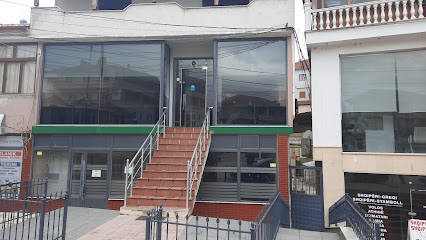
Discover the Serene Beauty of Lake Prespa
Experience the serene beauty of Lake Prespa, a natural paradise rich in biodiversity and cultural heritage, perfect for outdoor adventures and relaxation.
Lake Prespa, an enchanting natural gem nestled between North Macedonia, Albania, and Greece, captivates visitors with its stunning landscapes and rich biodiversity. Perfect for nature enthusiasts and those seeking tranquility, this picturesque lake offers a serene escape from the hustle and bustle of everyday life. Explore its shores, enjoy birdwatching, or simply unwind in its captivating surroundings.
A brief summary to Lake Prespa
Local tips
- Visit during the spring or fall for the best weather and birdwatching opportunities.
- Bring binoculars for birdwatching and a camera to capture the stunning landscapes.
- Explore nearby villages for authentic local cuisine and cultural experiences.
- Consider an early morning or sunset visit for breathtaking views and fewer crowds.
- Check local weather conditions before planning outdoor activities.
Getting There
-
Car
From the nearest town within Prespa National Park, such as Liqenas or Pustec, head towards the main road leading to Lake Prespa. If you're in Liqenas, take the SH3 road south until you reach the junction with SH4. Follow SH4 towards the west, and after approximately 15 km, you will see signs for Lake Prespa. Continue on this route until you reach the lake's edge. Parking is available near the lake.
-
Public Transportation
To reach Lake Prespa by public transportation, first make your way to the nearest bus station in the towns of Liqenas or Pustec. From either town, take a local bus that is heading towards the village of Pustec. Confirm with the driver that they are stopping at Lake Prespa. The bus fare is usually around 200-300 Albanian Lek, and the journey will take approximately 30-40 minutes. Upon arrival, you may need to walk a short distance to reach the lake directly.
-
Bicycle
If you're feeling adventurous, you can also rent a bicycle from local vendors in Prespa National Park. Follow the same route as you would by car, taking the SH3 road to SH4. The ride will offer scenic views and take about 1 to 1.5 hours depending on your speed. Ensure to wear a helmet and stay hydrated. Upon reaching Lake Prespa, you can park your bicycle at designated areas.
-
Walking
For those staying close to the lake, you can walk from nearby villages like Liqenas. The walking trail from Liqenas to Lake Prespa is approximately 5 km and takes about an hour. Follow the marked paths that lead directly to the lake's shore, enjoying the natural scenery along the way. Be sure to wear comfortable walking shoes.
Discover more about Lake Prespa
Iconic landmarks you can’t miss
Prespa
7.1 km
Experience the serene charm of Prespa in Albania, a hidden gem surrounded by breathtaking landscapes and rich cultural heritage.

Agios Achillios bridge
11.1 km
Discover the enchanting Agios Achillios Bridge, a serene connection to the picturesque island set amidst the tranquil waters of Small Prespa Lake in Greece.
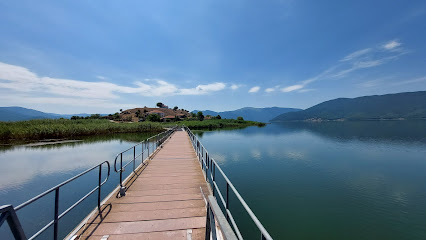
Stenje Beach
12.3 km
Experience the peaceful charm of Stenje Beach on Lake Ohrid, a hidden paradise perfect for relaxation and outdoor adventures in North Macedonia.
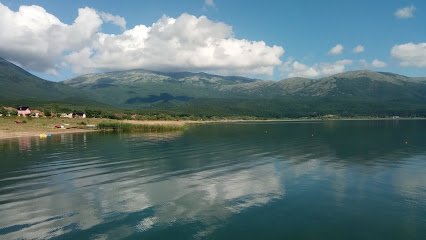
Maligrad
12.6 km
Explore the serene beauty and rich cultural heritage of Maligrad Island, a hidden gem in Albania's Lake Ohrid.
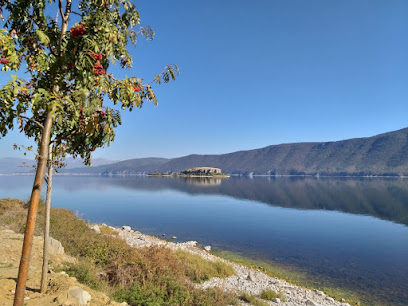
Small Prespa Lake
14.8 km
Discover the tranquil charm of Small Prespa Lake, a hidden paradise for nature lovers, offering serene landscapes and rich wildlife in a peaceful setting.
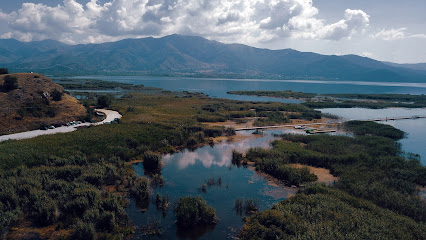
Mali i Thatë
15.9 km
Discover the breathtaking beauty of Mali i Thatë, a stunning mountain peak in Albania offering unforgettable views and adventures in nature.
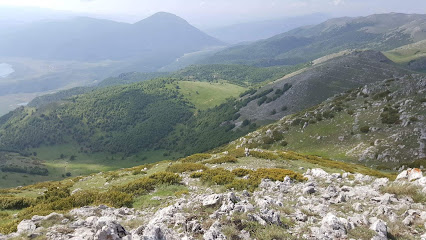
Galičica
18.3 km
Discover Galičica, North Macedonia's breathtaking mountain peak, offering stunning views, rich wildlife, and unforgettable outdoor adventures.
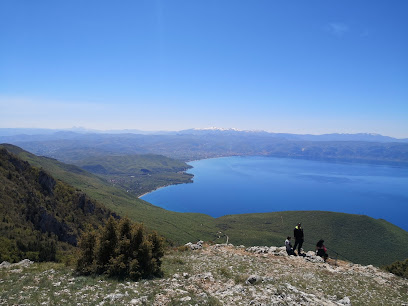
Baba Mountain
19.1 km
Discover the breathtaking Baba Mountain in North Macedonia, a stunning natural wonder perfect for hiking, adventure, and serene landscapes.
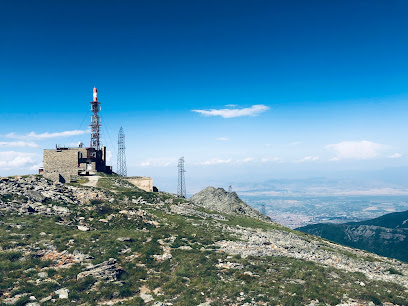
Koritski Rid
19.9 km
Explore the tranquil beauty of Koritski Rid, a scenic spot in North Macedonia's Galicia National Park, perfect for nature lovers and adventure seekers.
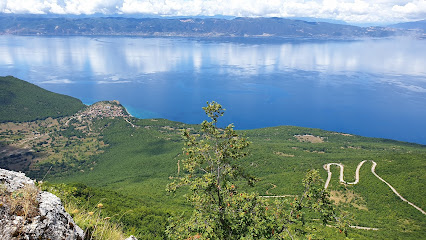
Varrezat e fshatit Lumas
23.2 km
Discover the tranquil beauty and cultural heritage of Varrezat e fshatit Lumas, a serene cemetery in the heart of Albania’s picturesque landscapes.

Camping ARBI
26.3 km
Experience the serene beauty of Lake Ohrid at Camping ARBI, a perfect blend of nature, comfort, and adventure in Pogradec, Albania.
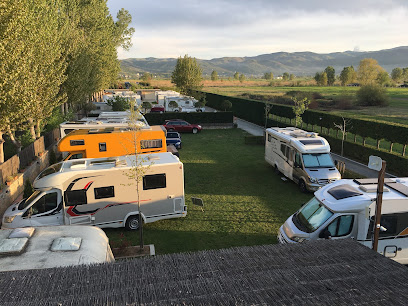
Hotel „Granit“
27.6 km
Discover tranquility and adventure at Hotel Granit, your ideal lakeside retreat in the heart of North Macedonia.

Hotel Perla
29.5 km
Discover tranquility and comfort at Hotel Perla in Pogradec, Albania - a perfect retreat by Lake Ohrid for every traveler.
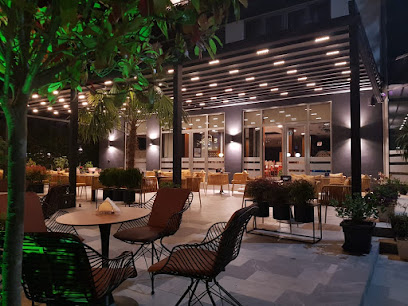
Hotel Park Lakeside
29.7 km
Discover tranquility at Hotel Park Lakeside in Ohrid, offering stunning lake views, fine dining, and a perfect base for exploring North Macedonia's rich culture.
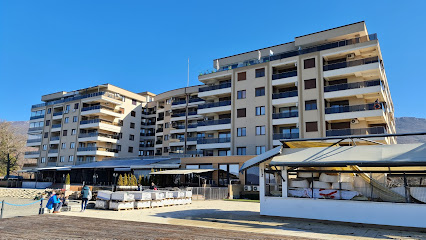
Drion Apartment
29.7 km
Experience comfort and tranquility at Drion Apartment in Pogradec, your ideal holiday retreat near Lake Ohrid's stunning shores.
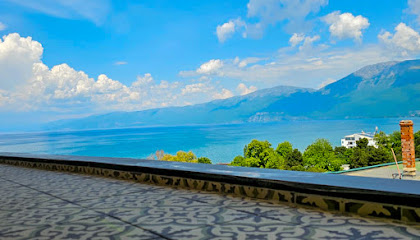
Unmissable attractions to see
Great Prespa Lake
0.0 km
Explore the serene beauty of Great Prespa Lake, a natural oasis perfect for tranquility, outdoor adventures, and breathtaking wildlife experiences.
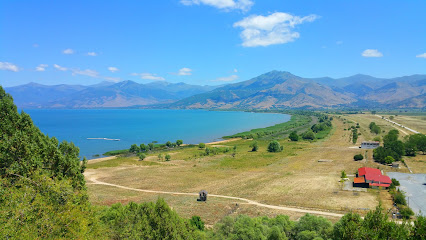
Golem Grad
3.3 km
Discover Golem Grad, an exquisite island in North Macedonia, rich in history and stunning natural beauty, perfect for nature lovers and adventurers.
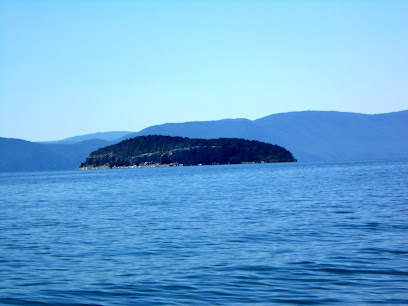
Dupeni Beach
8.5 km
Discover Dupeni Beach, a serene public beach on Prespa Lake perfect for relaxation, swimming, and stunning natural scenery in North Macedonia.
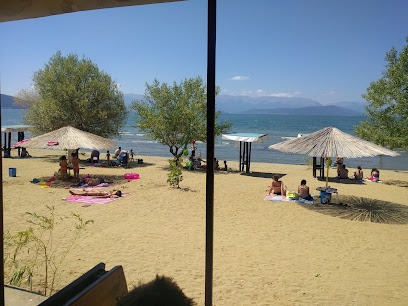
Saint Nicholas Church
11.1 km
Explore the architectural beauty and spiritual tranquility of Saint Nicholas Church, a gem of Eastern Orthodox heritage in Albania.
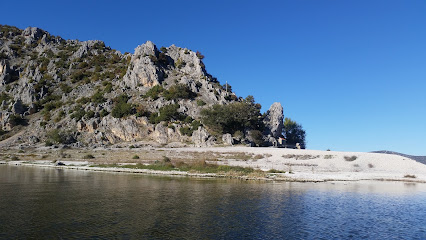
Prespa National Park
15.6 km
Experience the breathtaking beauty of Prespa National Park, a haven for nature lovers and adventure seekers in Albania's stunning landscapes.
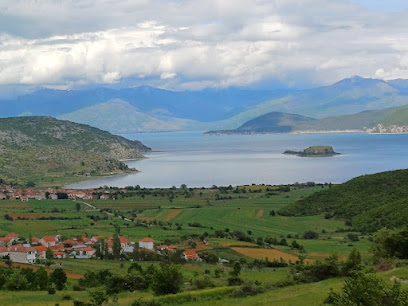
Church of St. Nicholas
15.7 km
Discover the breathtaking Church of St. Nicholas in North Macedonia, a stunning example of Greek Orthodox architecture and cultural heritage.
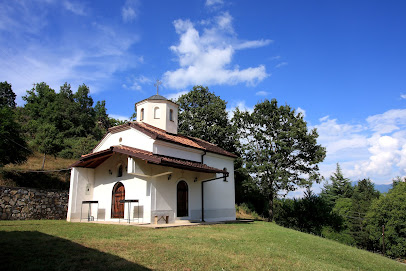
Magaro (2254m)
17.8 km
Discover the breathtaking heights of Magaro in North Macedonia, where adventure and natural beauty unite at 2254 meters above sea level.
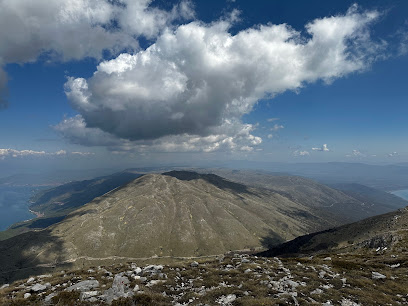
Поглед на две езера (Two lakes view point)
17.8 km
Discover the mesmerizing beauty of the Two Lakes View Point in North Macedonia, where nature's tranquility meets stunning vistas.
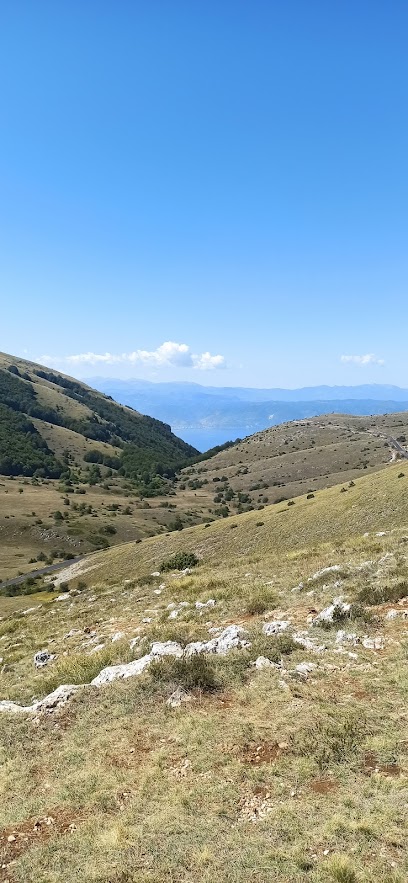
National Park Galicica
17.9 km
Explore the stunning landscapes and rich biodiversity of National Park Galicica, a natural gem between Lake Ohrid and Lake Prespa, North Macedonia.
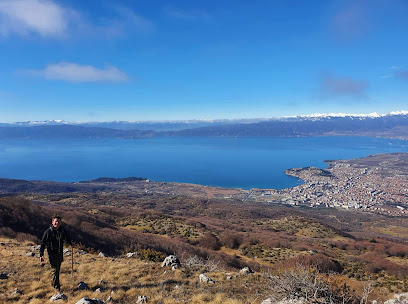
Paragliding Take-off Galičica
19.3 km
Discover the thrill of paragliding at Galičica, soaring over the stunning landscapes of Lake Ohrid and beyond in North Macedonia.
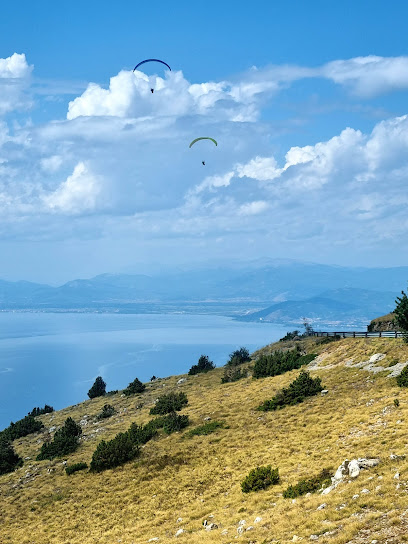
Crn Kamen
19.8 km
Discover the breathtaking beauty of Crn Kamen, North Macedonia's stunning cliff offering panoramic views and adventure in nature.
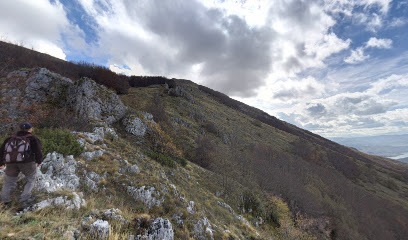
National park „Pelister“
20.7 km
Explore National Park Pelister, a stunning natural park in North Macedonia with diverse wildlife, breathtaking landscapes, and rich cultural heritage.
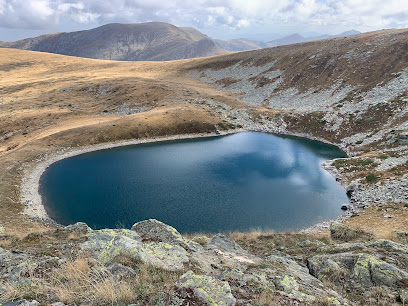
Church of Saint Nicholas
21.8 km
Discover the architectural beauty and serene atmosphere of the Church of Saint Nicholas in Trpejca, a highlight of North Macedonia's spiritual heritage.
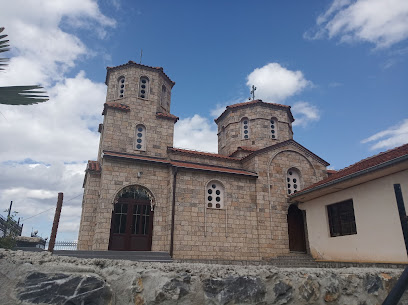
Trpejca Beachfront
21.9 km
Discover the serene beauty of Trpejca Beachfront, a tranquil retreat by Lake Ohrid in North Macedonia, where relaxation meets stunning natural landscapes.
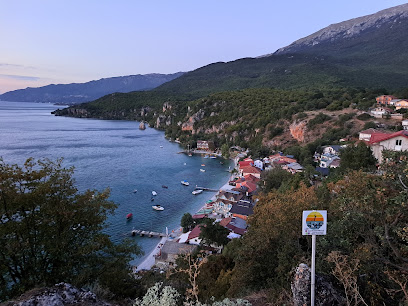
Villa „Bube“
21.9 km
Discover the serene beauty of Villa Bube, a lakeside retreat in Trpejca, North Macedonia, combining luxury with rich cultural experiences.
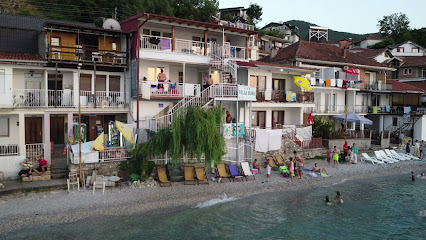
Essential places to dine
Syntrofia
6.0 km
Discover Syntrofia: A lakeside gem in Psarades offering authentic Greek cuisine and unforgettable views.
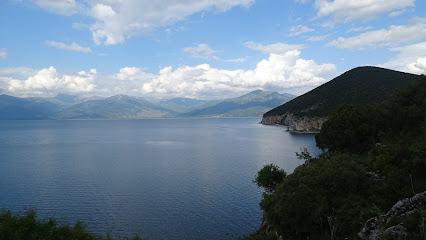
Taverna Vasil
8.5 km
Discover the authentic flavors of Albania at Taverna Vasil in Dolna Gorica – where tradition meets taste.
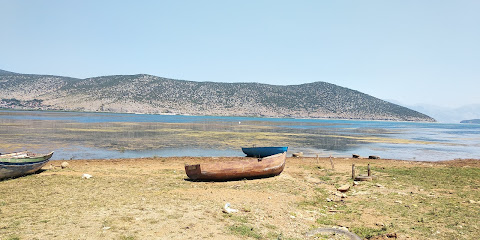
Bar-Restorant PANORAMA(tek Lupçe)
13.7 km
Experience exquisite Albanian cuisine with stunning views at Bar-Restorant PANORAMA in Pustec Municipality.
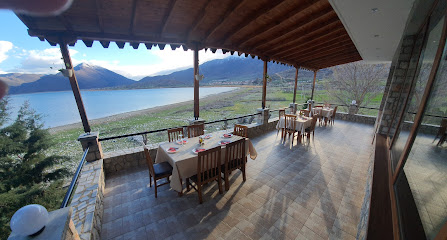
Hotel Restaurant ''Aleksander''
16.2 km
Experience authentic Albanian cuisine with breathtaking views at Hotel Restaurant 'Aleksander' in Zrnovsko.
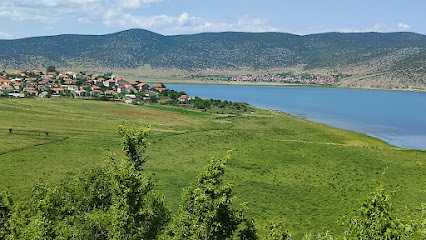
Bar Restorant "Kristi" (tek Spiro)
16.3 km
Experience authentic Albanian cuisine at Bar Restorant 'Kristi' in Zrnovsko - where every dish tells a story.
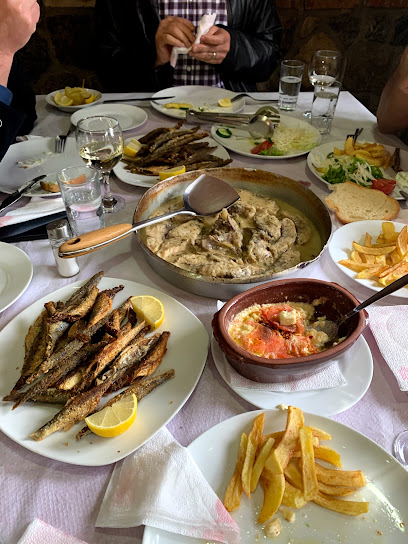
Restaurant „Ostrovo“
23.8 km
Experience authentic Macedonian cuisine with stunning views at Restaurant 'Ostrovo', nestled by Lake Ohrid.
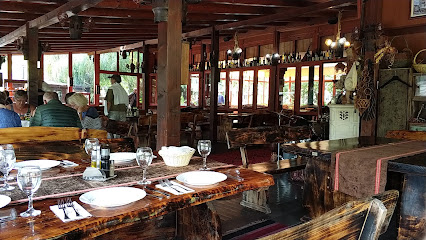
Rritja e Koranit
25.3 km
Discover Rritja e Koranit: A culinary haven by Lake Ohrid offering fresh fish dishes and warm Albanian hospitality.
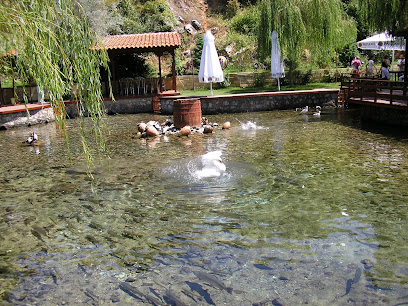
Taverna KOÇO
25.4 km
Experience authentic Albanian cuisine with stunning views at Taverna KOÇO in Tushemisht.
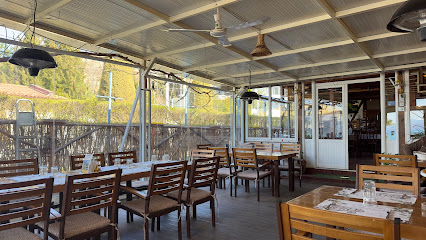
Dallga
25.4 km
Discover authentic Albanian cuisine at Dallga in Tushemisht – where breathtaking lake views meet delightful flavors.
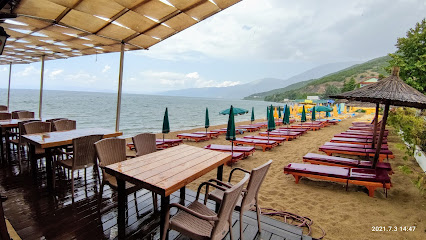
Bar Restorant Hotel Qafë Plloçë
27.7 km
Experience authentic Albanian cuisine at Bar Restorant Hotel Qafë Plloçë amidst stunning landscapes in Stropckë.
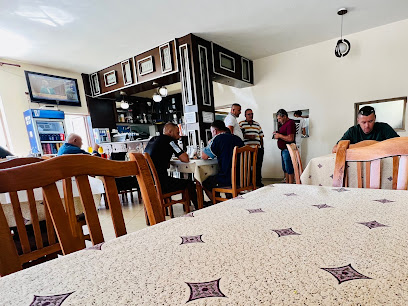
Cezma e madhe
28.8 km
Discover Cezma e Madhe in Bilisht, where classic American flavors meet local charm in an inviting dining experience.
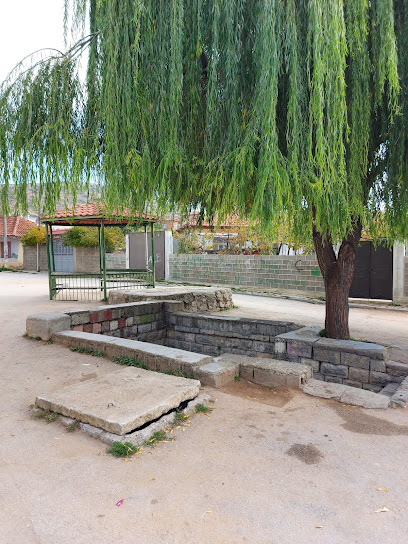
Taverna Saimel
29.5 km
Discover authentic Albanian cuisine at Taverna Saimel in Pogradec, where tradition meets flavor in every dish.
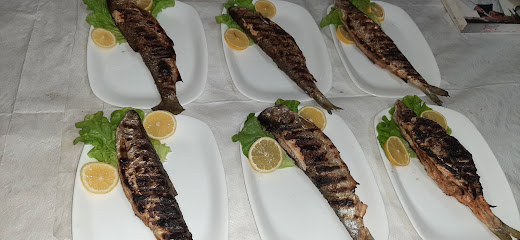
1 Maji Restaurant
29.5 km
Discover authentic Albanian cuisine at 1 Maji Restaurant in Pogradec - a culinary gem with stunning lake views.
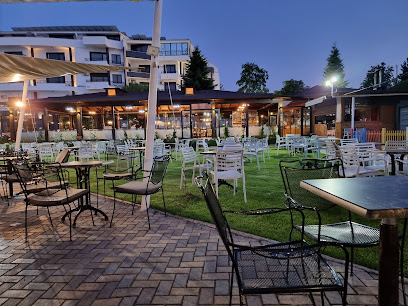
Perla Restaurant
29.5 km
Experience the authentic flavors of Albania at Perla Restaurant in Pogradec - where exquisite cuisine meets breathtaking lake views.
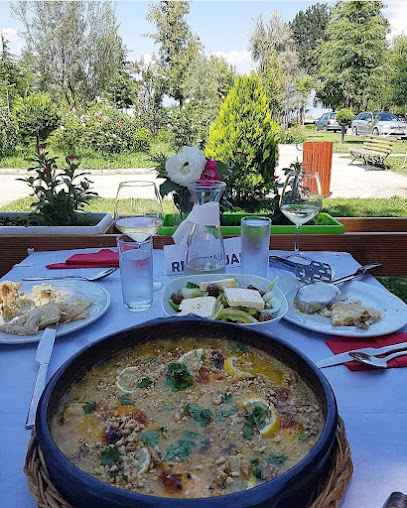
Bar Restorant Kuinda
29.5 km
Experience authentic Albanian cuisine at Bar Restorant Kuinda with breathtaking views over Lake Ohrid in beautiful Pogradec.
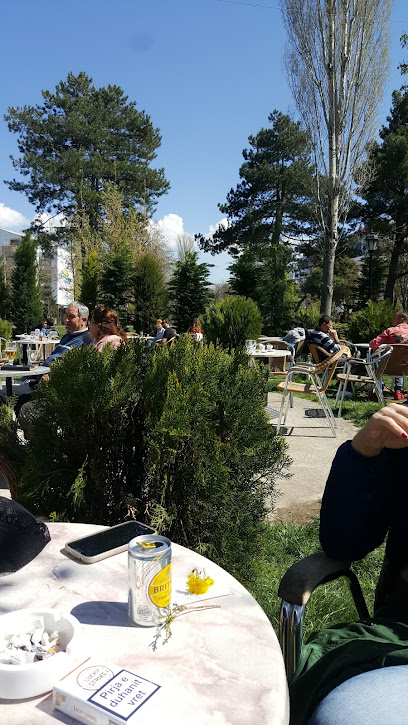
Markets, malls and hidden boutiques
Jeton supermarket
21.7 km
Experience the flavors of Albania at Jeton Supermarket, a local gem in Zvezdë offering a wide range of grocery items and Albanian specialties.

Market
21.7 km
Explore the bustling Market in Zvezdë, Albania for fresh local produce, traditional delicacies, and a taste of authentic Albanian culture.
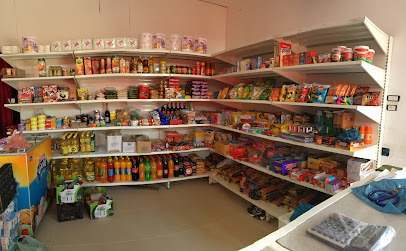
Market Selo
23.2 km
Explore the vibrant flavors of Albania at Market Selo, your go-to grocery store in Pojan for fresh produce and local delicacies.

Market Bardhi
24.3 km
Explore the authentic flavors of Albania at Market Bardhi, a beloved grocery store in Zëmblak offering fresh produce and local delicacies.

Iliria Foods
26.0 km
Explore Iliria Foods in Plasë, Albania - your ultimate shopping haven for local treasures and culinary delights.
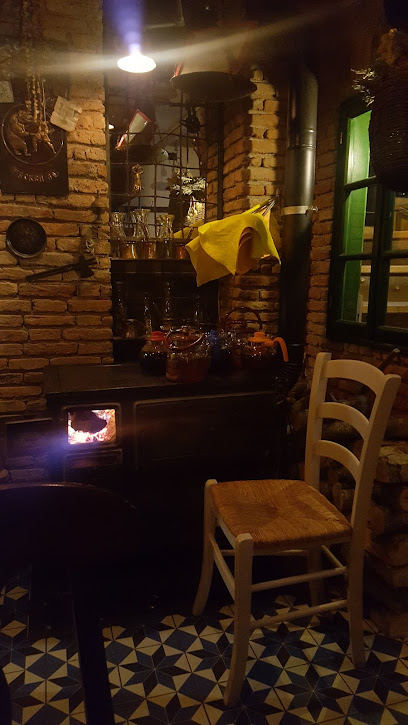
Lule Natyrale "Nikol'
28.9 km
Discover the enchanting world of flowers at Lule Natyrale 'Nikol', Bilisht's premier florist, where nature's beauty meets artistic floral design.
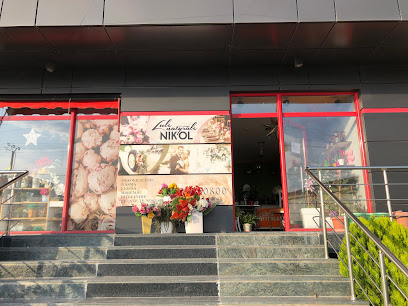
Klo kel konfeksion
29.0 km
Indulge in the sweet flavors of Albania at Klo Kel Konfeksion, a charming confectionery store in Bilisht offering a delightful variety of treats.
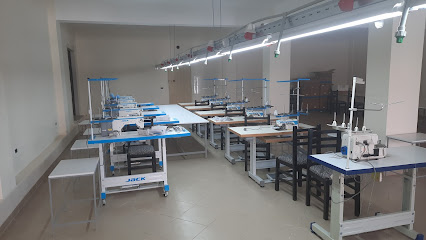
Bojra
29.1 km
Explore Bojra, a vibrant shopping mall in Bilisht, Albania, where local culture meets modern retail – perfect for all your shopping needs!
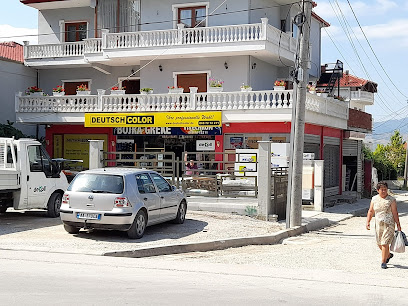
Kartodrom Pogradeci
29.2 km
Kartodrom Pogradeci: Thrilling go-kart racing experience in Pogradec, Albania, amidst breathtaking views of Lake Ohrid.
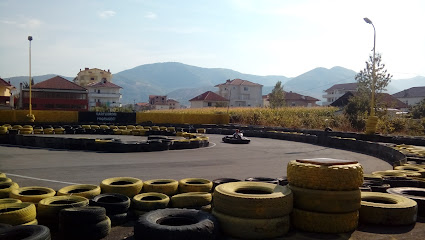
One Shop Bilisht
29.2 km
Discover the vibrant shopping scene at One Shop Bilisht, where local culture meets a variety of retail experiences in the heart of Albania.
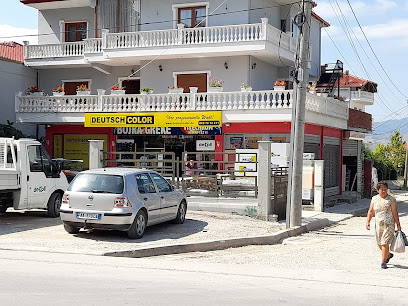
Market Kristi
29.3 km
Discover the vibrant flavors and local culture at Market Kristi, a must-visit produce market in Bilisht, Albania.
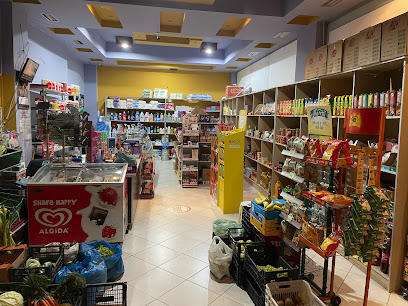
Color Preference
29.3 km
Discover the vibrant shopping experience at Color Preference in Bilisht, where local culture meets modern retail in a delightful atmosphere.

La Coquette
29.7 km
Discover unique fashion and local craftsmanship at La Coquette, a must-visit clothing store in Pogradec, Albania, for every stylish traveler.
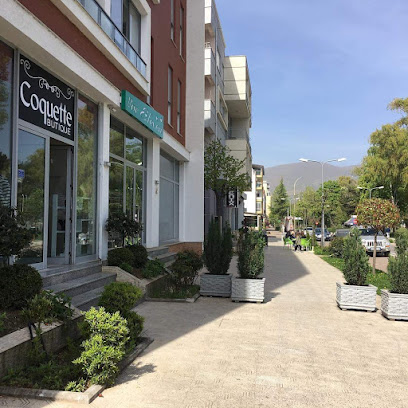
Bulmetore zvezda
30.1 km
Experience the authentic flavors of Albania at Bulmetore Zvezda, a charming cheese shop and bakery in Pogradec, renowned for its local delicacies.
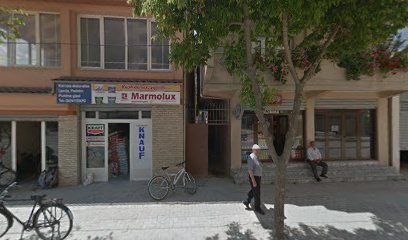
Taverna Ndona
30.3 km
Experience authentic Albanian cuisine with breathtaking views at Taverna Ndona, the culinary highlight of Pogradec.
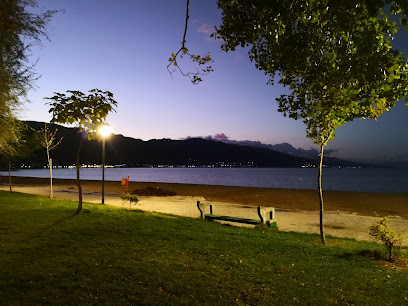
Essential bars & hidden hideouts
ALEKSANDER PARK
15.2 km
Explore the tranquil beauty of Aleksander Park in Pustec Municipality, a serene retreat perfect for relaxation and nature appreciation.
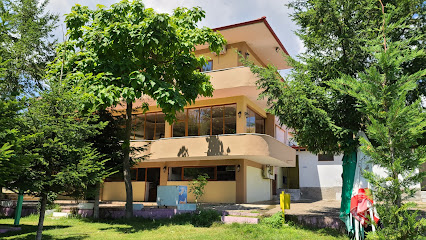
Ronaldo Coffe
20.6 km
Experience the warmth and charm of Ronaldo Coffee in Bregas, where every cup is crafted with care and community spirit.
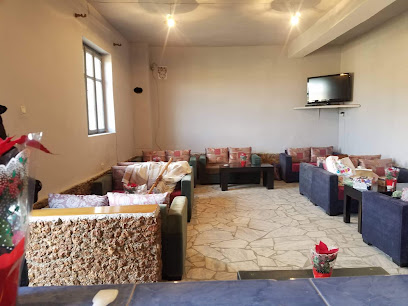
bar caffe megi
20.6 km
Experience the vibrant nightlife and warm hospitality at Bar Caffe Megi, a must-visit bar in Bregas, Albania, perfect for every traveler.
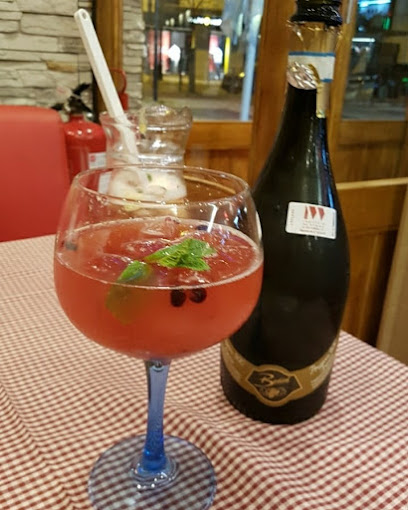
Bar Coffee Oresti
20.9 km
Experience the vibrant atmosphere and refreshing beverages at Bar Coffee Oresti in Podgorie, Albania—a must-visit for every traveler.

Internet-Caffe-Kuq & Zi
21.7 km
Experience the vibrant atmosphere of Internet-Caffe-Kuq & Zi, a cozy bar in Zvezdë, where locals and travelers unite over refreshing drinks.
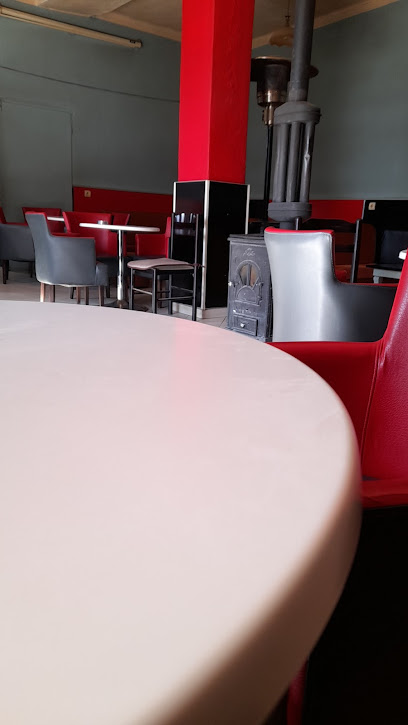
Bar
25.8 km
Experience the lively bar scene of Vernik, Albania, where local culture meets vibrant nightlife in a welcoming atmosphere.

Bar Kafe Turi
26.5 km
Discover Bar Kafe Turi in Bitinckë, Albania: a cozy bar offering local drinks and a vibrant atmosphere perfect for unwinding and socializing.

Triumph Bar
26.7 km
Experience the charm of Triumph Bar in Bitinckë, Albania, where coffee meets cocktails in a cozy atmosphere perfect for relaxation.
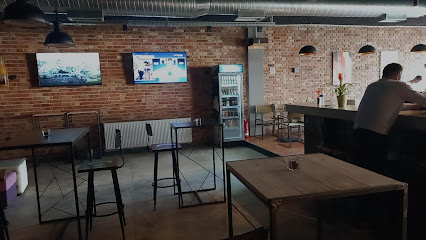
Taverna Cenolli
28.3 km
Experience authentic Albanian cuisine at Taverna Cenolli in Bilisht, a culinary treasure offering delicious traditional dishes in a welcoming atmosphere.
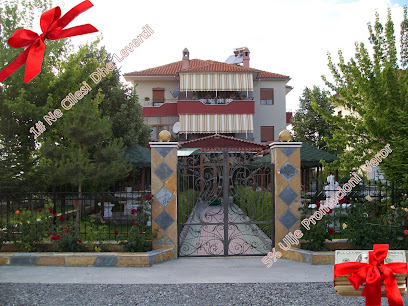
RestorantBarKafeGenti
28.5 km
Experience the heart of Bilisht at RestorantBarKafeGenti, where drinks and friendships flow in a cozy atmosphere.

Bar B'liss
29.0 km
Experience the lively atmosphere of Bar B'liss in Bilisht, where locals and tourists come together to enjoy refreshing drinks in a cozy ambiance.
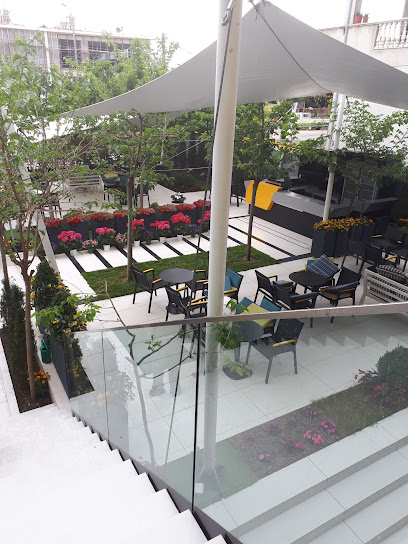
Bar-Kafe Esli
29.0 km
Experience the authentic ambiance of Bilisht at Bar-Kafe Esli, your perfect spot for relaxation and local drinks.
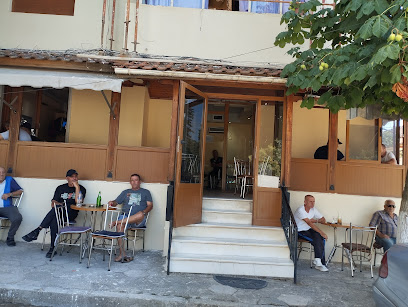
Bar Prive
29.1 km
Discover Bar Prive in Bilisht, a vibrant bar offering a unique taste of local culture with a variety of drinks and a warm atmosphere.
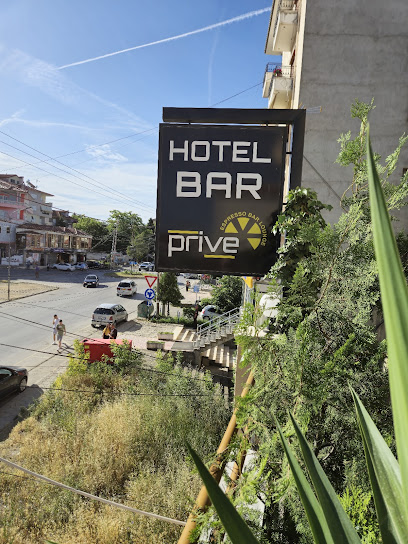
Bar & Grill '' Te Gonia ''
29.2 km
Experience authentic Albanian cuisine at Bar & Grill 'Te Gonia' in Bilisht, where every meal tells a story of rich flavors and warm hospitality.
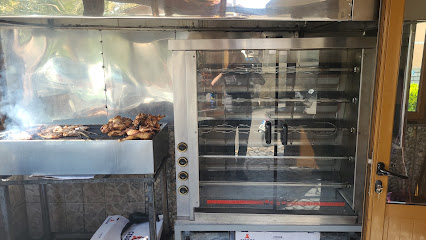
Bar kafe Lumi
29.2 km
Discover the charm of Bar kafe Lumi in Bilisht, where warm ambiance meets refreshing drinks for a perfect local experience.
